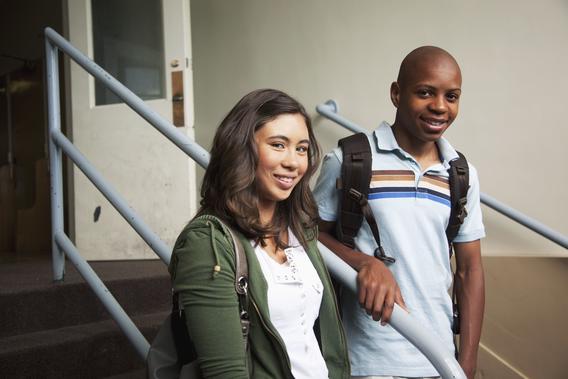
Restorative Justice and Healthy Youth Development
The question of how society responds to harmful and criminal behavior by young people continues to be up for debate. Most system policies and practices emphasize practices of social control: determining guilt and having an authority figure impose consequences. However, communities looking to take a different approach to safety – one focused on social engagement – are utilizing restorative practices and restorative justice approaches.
Restorative justice approaches, facilitated by trained practitioners, work to connect the people impacted by harm (including direct victims as well as those impacted through ripple effects) and the people who caused the harm to determine how to respond in a way that will lead to healing and restoration for all involved. While often most powerful when culminating in face-to-face dialogues and tailored accountability plans, this process can also be successful via mediated communication.
Feelings of hurt, embarrassment, shame, and humiliation often follow harmful and criminal behavior, and signal to us that something is awry. “Developing young people need extra support in understanding these feelings and what to do with them,” says PRC researcher Kara Beckman. But too many young people, especially Black, indigenous, and other youth of color are met with punishment and exclusion from the community. “We need policies and practices that instead surround young people with the caring support of people who will help them grow and learn from their mistakes, while also acknowledging the responsibility they have to the people they harmed,” says Beckman.
Shifting from a “retribution” to “restoration” mindset, especially in these divisive times, is a politically-bold move. And, when communities are brave enough to systemically implement these new accountability approaches, the evidence shows that they are more effective, because they help youth develop empathy, understand multiple perspectives, and determine how to live in accordance with their values even under difficult circumstances. At the same time, the practices humanize young people who cause harm. They shift the narrative about criminal behavior to one in which society and community share responsibility. And the evidence is growing that these approaches make communities safer.
Beckman and colleagues are fielding a growing number of requests to evaluate these approaches and are finding promising results. One compelling program is in Carlton County, a northern Minnesota county that has, for more than a decade, been diverting a growing number of young people to restorative justice approaches. Beckman analyzed their data and found higher success and lower re-referral rates compared to other studies, especially given broad eligibility criteria, including for referrals of felony-level incidents. Their sustained structure as a county funded program is also unique.
Beckman also recently was lead author on a published study which found that young people who completed a restorative justice process in Minneapolis were half as likely to be rearrested by police a year later as young people who went through the traditional court system. Similarly, Beckman published a report for the Ramsey County Attorney’s Office providing a rationale for their (Re)Imagining Justice for Youth initiative based on outcomes from more traditional juvenile justice system responses. The report describes a new, more restorative approach in alignment with brain science and youth development and highlights results from the first year of implementation.
...young people who completed a restorative justice process in Minneapolis were half as likely to be rearrested by police a year later as young people who went through the traditional court system.
“This work is a testament to diverse restorative practitioners in and across Minnesota who have been fighting for decades to have system responses that lead to equity, justice, and healing in our communities. Their persistence and sustained belief that we could reach a time of reckoning about the accountability processes we impose on youth is inspiring to me and I am deeply honored to partner with them to understand, uplift, and improve restorative approaches,” said Beckman.
Beckman was recently featured on MPR news to help better inform the public on what restorative justice actually looks like in practice. She co-authored a practice brief for educators about relational accountability within restorative justice, and completed a research tool about measuring restorative practices implementation in school.